
Back in 'shcool': Rampant child sex abuse in public schools, but don't look for the media to report it
A few weeks ago, police arrested Glendale, Arizona, public school teacher John Todorich for luring a minor over the Internet for sex.
But the arrest should not have been a surprise. In 2010, three adult witnesses reported that they saw the elementary school teacher openly fondle a boy's genitals during a gym class. The police got wind of the incident, but they declined to file charges. But now that Todorich has been arrested on the Internet crime, they have now charged him for the 2010 molestation.
But what did the district do back in 2010 after it learned that adults saw Todorich fondle a boy? It shipped him off to another school. Administrators notified the leaders at the new school, but they never bothered to notify the school's parents.
Sound familiar? It's exactly what Church officials were accused of doing decades ago and exactly what has been the source of a never-ending media frenzy.
A shocking case in New Jersey
And just last week, police arrested three teachers and two administrators at a single high school in Camden County, New Jersey, after law enforcement discovered that the male teachers had sex with students and that administrators covered it up. At a news conference following the arrests, the local prosecutor declared:
"It was obvious there was a culture at [the school] where teachers thought they could get away with improper relationships with their students and administrators turned a blind eye to these relationships' existence."
Meanwhile, the school did not seem very responsive to parents who were concerned about their children. As one paper reported:
"[M]any parents said that they'd heard rumors but nothing else, and that when they confronted the administration they heard nothing.
"'I called the school on Monday,' said a [parent] who asked that her name not be published. 'I have four girls there, and I wanted to know if they were safe. They just said, 'No comment.'"
Sound familiar? Again, this echoes what Church officials were accused of doing decades ago.
Scandals and more scandals
Need more? Here is a sampling of public school sex abuse cases from just in the last few weeks, almost all of which received scant media attention.
- South Carolina law enforcement arrested a high school teacher on "11 counts of criminal sexual conduct with a minor and 13 counts of lewd act on a minor";
- A judge sentenced a former high school teacher in Michigan to four to 20 years in prison for having sex with teenage male students after he pleaded guilty to "multiple criminal charges of third-degree criminal sexual conduct (CSC), fourth-degree CSC, child sexually abusive activity, using a computer to commit a crime and distributing sexually explicit material to children" (The teacher has HIV, by the way, and the students didn't know this);
- Police arrested a Pennsylvania school teacher for failing to report the rape of a 15-year-old girl;
- A California judge unsealed documents showing that an elementary school teacher knew shocking details of molestation by a teacher but did not call the police. (Prosecutors say the teacher molested five girls between the ages of 7 and 9-years-old.);
- Police charged a former teacher and coach in Illinois with 10 counts of criminal sexual abuse for having sex with one of her former players;
- A judge sentenced a former third-grade teacher with the Los Angeles Unified School District (LAUSD) to 25 years in prison and ordered him to register as a sex offender for life for molesting 13 former students;
- A judge sentenced an Orange County, California, teacher to four years in prison after he pleaded guilty to "two felony counts of unlawful sexual intercourse, four felony counts of oral copulation of a minor, and two felony counts of sexual penetration by a foreign object of a minor";
- A teacher in New York State resigned after law enforcement charged him with "eight counts of first-degree disseminating indecent material to minors, one count of promoting sexual performance of a child, third-degree sexual abuse and endangering the welfare of a child";
- A student in Chicago who was abused by her high school music teacher is suing her district after the teacher pleaded guilty to sexually abusing her and another student;
- Police arrested a North Carolina elementary school teacher on "charges of second-degree forcible sex offense and first-degree kidnapping";
- Washington state police arrested a high school teacher after "a now-17-year-old girl told her mother she had been having sex with a teacher for the past two years";
- A Florida teacher appeared in court after police arrested him on "multiple sexual battery charges on victims less than 12 years of age";
- California police arrested a high school teacher for "an 'unlawful intimate relationship' with a 17-year-old female student";
- A Virginia student teacher faces two counts of aggravated sexual assault and four counts of child-porn possession; and
- A 9th grade English teacher in Arkansas turned herself in to police amidst charges that she had a sexual relationship with a 17-year-old student.
Not the Catholic Church
The rampant abuse of innocent kids happening today in public schools amplifies a number of points:
1. These offending public school teachers have obviously not taken vows of celibacy, so the abuse in the Catholic Church years ago had nothing to do with priestly celibacy requirements. The media should finally retire its tired argument that celibacy somehow causes sex abuse.
2. As we have repeatedly stated before, accusations against Catholic priests committing abuse today are very rare. When we read an accusation of abuse against a Catholic priest, it almost always entails an allegation from decades ago.
3. The Catholic Church has implemented protective measures that are unprecedented elsewhere – annual audits, intensified screenings, abuse awareness trainings, diocesan review boards, and more – making the Catholic Church likely the safest environment for children today. But one would never know this from the media coverage.
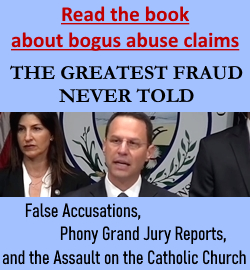

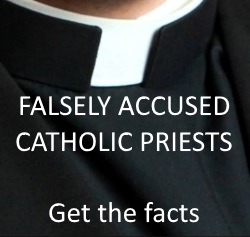
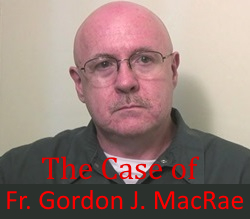

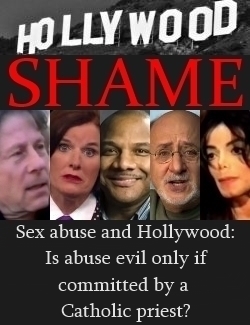
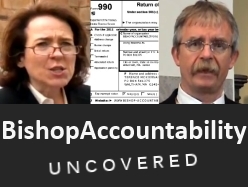
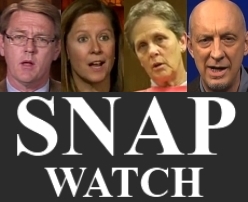
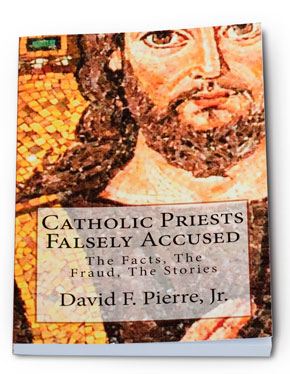
Please comparing molestors is shameful. How did you find out about these? Some news service? They are truely not very hidden then.These people represent no one but themselves. Your molestors and their enablers, your hierarcy,have one extra ordinary thing going and that's religion. Not because they're a faith but because they declare themselves the moral high ground. It's the contrast between what they pose as being comparison to their actions. That attracts the attention. that and the fact that you here are in schock as if you've been through a war. your over reacting because you never expected this to be part of having the one true faith.
Jim, Your argument does NOT hold water. You think it is not a big deal if teachers molest their students? Uh uh. It is NOT legitimate to focus solely on Catholic priests. I have kids in public school. You're in over your head on this one.
Julie, sorry I missed your post. What makes you think that I think that it's not a big deal if teachers molest their students????? That's quite a leap given I was molested by teachers. You're in outrageous territory when you toss out an aspersion like that.
We will now see what happens as the country begins to discover that the sexual abuse (however defined) of children by professional caregivers is more widespread than previously considered. We saw this media-shaped publicity campaign flare-up in its now-classic form 30 years ago with the McMartin Pre-School Day-Care Satanic Ritual Abuse trials; and the general descriptor of it that I use here captures the cobbled-together nature of the specific ‘bases’ whose interests were targeted by the campaign: parents of very young children, fundamentalists from the Right, family-quality types who weren’t happy about pre-school and its effects on children and family in the first place, the law-and-order right.
But the campaign imploded: after one of the longest and most expensive trials in the country’s history, little was discovered, although police were digging up pre-school grounds to locate hidden tunnel networks (shades of the Battle of Okinawa!) in which dragons and other creatures (or teachers dressed up as such) were said to be hiding, according to stories elicited from children by police investigators using methods that were highly-dubious even back then; most of those convicted were later released upon appellate review of the conduct of their trials and the investigations and the highly suspect quality of the ‘evidence’ (mostly those stories elicited from the children); and generally the subject was quietly dropped and buried in the media consciousness.
But then, in the mid-80s, the Church became involved as various individual priests were accused. It was here, I would say, that the Catholic phase of the sex-abuse matter started up. And if you look at it in terms of Who Might Benefit from the campaign, a whole bunch of special interests and demographic bases come into view: the then-ascendant fundamentalists (raised up by the Republicans against the secularizing Democratic liberals); the law-and-order types (always an American political staple); the secularizers who were finding the Church stubbornly opposing various initiatives regarding the Family and Marriage and other bits; the neocons who were strongly opposed by the Church’s stance regarding the re-ignition of the spread of nuclear-weapons by the US and other governments; and a congeries of anti-Catholic and other disaffected types who always rise like trout to the fly when it comes to going after ‘authority’ in any form. (The internet hadn’t really achieved the form – especially in allowing input and commentary by anybody with a keyboard and web access – that it did a decade later, but that would come.) The media, already financially threatened by the decreasing lack of advertising and seeking to improve their lot by opting for ‘soft’ news and ‘if it bleeds, it leads’ type of material, quickly became hooked.
And assorted interests within the Church herself became involved: those various persons lay and even religious or clerical who had taken from Vatican 2 the idea of liberalizing (whatever that might mean, and it can mean many things) the Church or even ‘democratizing’ it (much as the mainstream American Protestant denominations had been doing toi themselves since the latter part of the 1800s).
Allegations also began to surface, about current or long-past incidents. The same problem of ‘evidence’ and ‘stories’ that had undermined the McMartin-type cases arose, but this time around those problems were ignored, not questioned but rather accepted as presumptively true by the media (and, increasingly, on the internet).
Within the campaign, phases developed as – under the influence of so-called ‘victim friendly’ legal reforms – legal barriers such as the validity of evidence and statutes of limitations began to erode, opening up more scope for legal maneuvers. Amplifying a long-standing American danger of dispensing with formal constitutional protections (and even the presumption of innocence) if there was an ‘emergency’, claims were made in the larger ‘sex offender crisis’ that such constitutional and legal ‘obstructions’ could not be allowed to interfere with ‘solutions’ to the problem.
With the weakening of jurisprudential protections, the gate was opened for enterprising tort-attorneys to bring lawsuits. And that finally reached its florid phase with the 2002 ‘sue the bishops and dioceses’ phase, which involved the various Church Insurers as well.
But special new regulatory procedures and standards were put in place by the Bishops. And by all extant indications they have had a salutary effect over the past decade.
Neatly, the sustained intensive focus on the Church – to the exclusion of the hardly-illogical probability that sex-abuse of children was present in any public or private venue – kept public focus off any other probable sites of such abuse. Although, if one thinks about it for a moment, that exclusion should have appeared clearly for what it was long ago: if sex-abuse is claimed even by assorted advocacies to be rampant, then it can hardly be limited to one organization (such as the Church).
I think what we shall see now, in the light of a widening of the scope of inquiry into professionals abusing (however defined) children entrusted to them, is an intensifying insistence that either a) any abuse in other venues is merely due to rogue bad-apples; or b) that the Church must still be kept as the core-focus because she is somehow ‘unique’ and therefore her failures are equally ‘unique’.
But this claim will not be focused on the specific abuse particulars, but rather now on the rather abstract and complexly derivative insistence that since the Church has always claimed some form of ‘perfection’ then her failures are qualitatively different in a way that no other venue’s practitioner-abusers’ failures can possibly be. And thus – but of course – that The Ball Must Be Kept Rolling.
That the Church had failed, and the hierarchy had failed, in some significant ways, is – I would say – beyond question. But in the past decade very substantial reforms have been emplaced and give every indication of having the necessary good effects.
But then, what is left to Keep The Ball Rolling? Again, I think it will have to focus largely on this ‘perfection’ bit. But what Catholic child ever grew up with the idea that the Church was ‘perfect’ in the sense that she had achieved and embodied perfection in this world? Who wasn’t taught that the Church was a human institution with a divine commission? And who could imagine that when Jesus commissioned Peter – no prize in the Gospel stories – He anticipated any form of fully-realized earthly perfection? It had always seemed to me, back then in grammar school, that Jesus pretty much went out of His way to pick one of the most wobbly of the disciples to be the ‘rock’. (And that Peter was a ‘rock’, but not in a positive sense – kids will entertain thoughts like that.)
The Church counsels ‘perfection’ – a ‘perfection’ defined as being similar to that of a well-aimed arrow: you always try to keep yourself ‘aimed’ at perfection, and do the best you can. Beyond that, there isn’t much ‘perfection’ realistically to be expected in this life. Nobody escapes imperfection, and some failures are much more substantial than others. The Church has always understood that, and in her effort to make allowances for human imperfection has far more often than not managed to stand for both perfection on the one hand, and forgiveness and understanding on the other.
That the Church may well have erred too much toward forgiveness and second-chances in the abuse-crisis (such as it may have been) is quite probably true. As American courts dealt rather too leniently with drunk drivers for so many decades. Reforms have now been put in place.
I am looking forward to the Church now standing-forth far stronger and more genuine, having embraced the reforms.
And I think that – taking a large and long view – there is something definitely Providential in the time-line here. American society has always been rather breezy and upbeat about life, given the stunning abundance provided by the abundance of our natural resources and the economic abundance provided by our industry. But that era is now rapidly drawing to a close and soon Americans will come to realize that just like the ‘wall’ of the oceans that once protected the country from foreign invasion but (after 1945) no longer did, so too the ‘wall’ of Abundance and Wealth that always protected us from a more visceral and clear sense of the uncertainties and dangers of human existence is now dissolving.
In situations like that, most people tend to turn toward Providence and God; standing in a cemetery at midnight in the chill and stormy rain gives you a much more palpable sense of mystery than standing there at high-noon on a bright, warm sunny day.
There will be a need for the Church such as Americans have not experienced since at least the Great Depression and the Dust Bowl.
What I am hoping is that the Church is able now to marshal her ancient resources and gifts to meet this need.
I’m glad to see that in some places lay Chancellors are being put in place, freeing up the clergy to focus on spiritual and religious ministry. The Church’s vital role in standing robustly for the Spiritual, especially in a time when the Temporal is now demonstrating its own ancient limitations, is a watershed Moment in American and world religious history.
As this vast and profound historical Wave gathers strength and intensifies, then I think the assorted sniping and ranting that have enjoyed such a field day in recent decades will be washed aside. Those so inclined will, of course, be free to continue along the same paths as they have long pursued, but people generally are going to see them in a perspective that has been lacking for so long.
Tying in with ideas I had mentioned about the curious way that the internet can create Oz-like illusions, I’d like to share this point made by historian Daniel J. Flynn in his 2008 book “A Conservative History of the American Left” : the Communist Party never really achieved a wide membership or following in this country, and yet in, say, the period 1936-1939 you would have gotten a distinctly different impression of its size, thanks to well-placed “fellow-travelers” (as they were called) in the print and journalism and entertainment fields. You often heard about the benefits and blessings of Communism from a wide variety of magazine and newspaper articles (not so much radio, and there was no TV).
No doubt if there had been an internet back then, this curious dynamic would have been even more greatly amplified: a relatively few committed people, given sufficient attention by media elements, could easily appear far more numerous (so to speak) than they actually were. And thus their message would seem to enjoy a wider public acceptance than it really did.
In this sort of thing, appearance is everything (as it was for Oz, the apparently powerful wizard).
Toss in that nowadays (as opposed to the 1930s) once can so easily make claims and statements merely on the basis of feelings – rather than clear thinking or rational persuasion – that receive a polite or at least tolerant public reception, and I think you can see again something relevant about the existence of this Catholic Abuse ‘Crisis’.
But as the American Communists eventually discovered, appearances don’t necessarily indicate reality – and when in the immediate postwar era they tried to demonstrate their actual strength among the general public, it turned out to be far less than had been assumed. And as the Oz-like curtain of appearance was ripped away, so too their ‘presence’ on the American scene.
Just how much actual support the negative judgments and claims about the Church have – not only in the matter of the abuse material but also more generally in terms of her credibility or the worthwhile nature of her mission and works – is a very interesting question. Personally, I think there’s a lot less than meets the eye.
Very well written Pub. The Communist part not so much in my opinion. I have always identified myself as a communist with a small c. Purges and witch hunts left the American people in the lurch not just communists.
The purges of the unions Reds left the labor movement and the working class high and dry. The outcome being America went from 1 in 4 union members to 1 in 17 and real wages have not risen for the working class in 40 years. You can thank the lack of Labor representation for that. So now we have a government for sale and corporations have become persons. Miracle of miracles.
.And this wave you speak of is coming. The Right believing it's defending freedom has over looked the freedom from fear and freedom from poverty. Telling people it's necessary to work harder when there are fewer living wage paying jobs then ever before. You can't pull yourself up by your boot straps if your starving or uneducated or have no boots. the people at the bottom 150,000,000 Americans collectively own what the top 400 Americans are worth. That's the truth and the right has no answer but to give more to the wealthiest.
Jim, have you ever worked in a union environment? I have. I have also witnessed a union single-handedly through sheer incompetence lose the jobs 150+ people in a single day.
I have no use for them.
My Family was in the trade union movement from the 1880's in England. The crap jobs I had I only wish there was a union. I have asked people to leave my home when they spoke in a bad way about unions. You know you wouldn't have weekends because it was the union movement that fought for the 5 day week; The 8 hour day, overtime pay, vacations, health care benefits and much more. I know no details about the union you are referencing. But when you threw out the Commies; American labor lost big time. And when Labor looses ;so do the American people.
If one union is bad does that make all unions bad or the union movement? You threw the baby out with the bathwater and now we are where we are in big doo doo.Real wages have not gone up 40 years for the vast vast majority of American workers. Capital has fled because we let it go. If the money was made here the money should stay here providing jobs and education for the people and the nation where the profit was made
And the unions ended child labor. In England in the 1800 children worked 18 hour days and when they droped dead at the looms they were buried in the factory yards Government is there to defend the peoples rights and protect them from the oligarchy .yet today the government is owned at large by the richest of us, not because they paid for it but because they stole it. Do you think the Wobbilies or The Molly Maguires of this world would have allowed the looting of the American people?
….all of which has -0- relevance in the labor dynamic today. My grandfather and my father needed a union. I do not.
Au contrare mon ami. Ayn Rand will not save you but organized left labor will. Just my opinion.
This isn’t directly connected to anything in the article above. I had been going over some old material and that prompted the thoughts I am putting up here.
I had previously noted the twin problems of ‘stories’, especially on the internet: a) it is not possible to conclusively corroborate them (especially with the internet modality) and b) there developed during the 1980s an under-examined tendency not to want to corroborate them, but rather to accept them at face value as presumptively credible.
That (b) point was partially a result, as I have said, of media and special-interest influence in whose interest it would be to have an apparently boundless cache of ‘stories’ to apparently support this or that. And it was also partially, I think, the result of a conflation of the therapeutic forum and the public forum: in the therapeutic forum (individual or group), there is a necessary tendency to accept the validity of the presenter’s feelings about the story s/he brings; accepting those feelings (rather than immediately questioning them) allows a build-up of a safe ‘space’ and a positive working relationship between therapist and presenter (and, in the group setting, with the rest of the group).
But it can also happen – and perhaps in less-skillfully conducted therapy, more often than one might imagine – that accepting the feelings about the story somehow works out to also accepting the story itself, and without any substantive questioning. With the rapid expansion of ‘therapists’ in the 1970s and 1980s to include all manner of what would previously have been known as ‘concerned helpers’ or ‘supportive listeners’, this dynamic became – I think – more frequent.
And, mixed with media and special-interest objectives, that dynamic came to assume a primacy and status that it really shouldn’t be accorded.
And then, transferred to the internet, it assumes a life of its own.
But I have – as I said – come across an old file that reminds me of another element to the mix. Some may recall the autobiography (from the later 1980s) of Rigoberta Menchu: it achieved a rather quick notoriety in that era, being, it was said, the autobiographical story and reflections of a young Guatemalan peasant woman during the Reagan-supported tenure of that country’s authoritarian government. (You can already see where her story would have appeal to a number of interests and groups.)
But questions arose: for a putatively unlettered young peasant woman from a rural milieu, she seemed to have some remarkably advanced-level theoretical (some said Marxist) interests, and a bit like Tom Hank’s ‘Forrest Gump’ character she seemed to have been present at a whole lot of noteworthy events, and her experiences appeared to be so spot-on for what one would expect of a ‘typical peasant oppressed by capitalism and American imperialism’ and a ‘woman oppressed by patriarchal dominance’ and so forth.
I am not here getting into either support or critique of US foreign policy in the Reagan era.
Rather, the significant point that relates to the Catholic Abuse Matter is this: in the course of things following the publication of her book, the defense was made that even if she didn’t really and actually experience all these things, the ‘situation’ (one might say ‘outrage’ or ‘crisis’) that she was describing was very real and that was all that really mattered. In other words, what she herself actually experienced and relates in her story should not be the main concern for readers and the public; rather, it should be that ‘situation’ that her story was bringing to light.
You can go back and forth on whether you agree with that approach to things, but I think that the publication of her book marked a watershed in the way public opinion was being shaped: it’s not the facts of any actual ‘story’, but rather the ‘situation’ (or ‘outrage’ or ‘crisis’) that the story – with presumably the very best of intentions – is trying to illuminate. Thus – as is famously asserted – “facts don’t matter”. Facts don’t matter because whether they are true or not isn’t as important as the ‘truth’ of the larger phenomenon that the story is dealing with.
This was, not surprisingly, one of Al Sharpton’s defenses of Tawana Brawley a year or two later, when her claims of rape began to factually unravel: the case wasn’t about whether she personally and actually was raped, but rather that white law enforcement brutalizes and rapes black suspects. And we saw it also in the 2006 Duke Lacrosse case, where – as the charges began to come apart (and the DA himself came under investigation and eventually lost his job and was disbarred for promoting a story whose assertions he knew to be false) – over a hundred of the Duke faculty signed a public statement of support for the allegant, and once again the mantra was voiced that “facts don’t matter”.
So to 1) the difficulty of corroborating (especially through the internet modality) and 2) the confusion of the therapeutic and the public forums, we now have to add 3) the ‘principle’ that being truthful about actual facts is not necessary so long as what your story is trying to illuminate is a situation (or outrage or crisis) that people should know about.
Immediately, you can see that what is lost here is a) any principle of actual truth-telling and b) the limiting-principle that imposes the boundary and limits of actuality and reality upon a story. There is, almost literally, a philosophy of untruth here (although spun as a ‘philosophy of a larger truth’).
None of this is immediately and completely dispositive when you are trying to assess the credibility of a ‘story’. But these are all elements and dynamics that are in play – and perhaps deliberately (if quietly) deployed.
Thus I offer these thoughts not in any sense to ‘simplify’ the task of assessing credibility, but rather to complicate that task. But it is – I am convinced – a necessary complication, if we are to sort through appearances to reach the substance.
I guess I'm missing something. Who's "story" on the net are you refering to?
Ah, but that’s precisely the point. What you missed was that the comment was conceptual – about ‘story’ in general – and not about any particular story. My comment was on a different level of analysis. Not just the usual high-school cafeteria scrum. You put it so well.
A bit blurry for me.
The difference between talking about a conceptual analysis of the defects of high-altitude strategic bombing with iron-bombs as opposed to incident-reports about particular aircraft and tail-numbers. That sort of thing.
O.K.